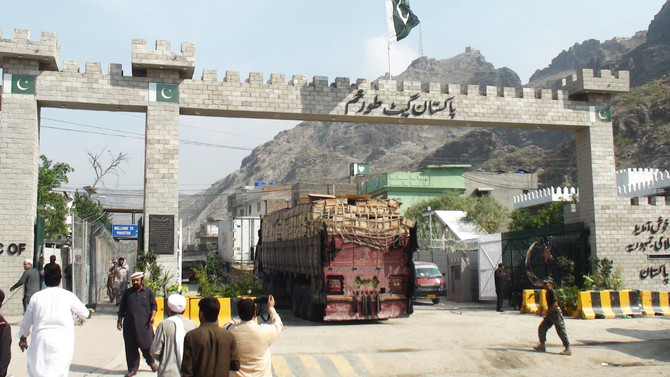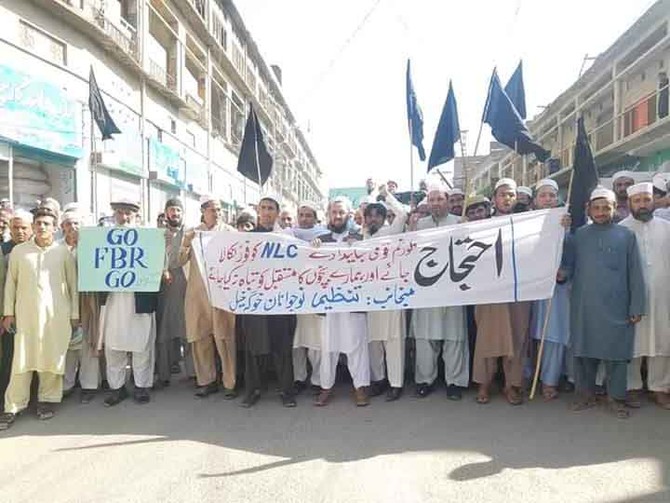PESHAWAR: Thousands of Pakistani tribesmen belonging to the Shinwari clan, which straddles the Pak-Afghan frontier, protested in Landi Kotal on Sunday, demanding visa-free movement across the Torkham border.
“We’re not being allowed to visit the other side of the border in Afghanistan, even though we have our businesses, shops, and properties there,” Zarqeeb Shinwari, president of the Custom Clearing Association at the Torkham border, told Arab News. “We cannot even visit our relatives on the other side.”
The Shinwaris were allowed to use special rahdari (passage) cards before 2016 that facilitated their cross-border movement. In the past couple of months, however, Pakistani authorities have started asking them for travel documents to cross into Afghanistan, he added.
Shakil-ur-Rehman, a senior government official at the Torkham border, claimed that the local administration had already taken notice of the protest by tribesmen, adding it would hold a meeting with the Shinwaris to tackle the issue in the next few days.
“We’re going to have a meeting tomorrow, or the day after, and hopefully resolve their legitimate problems,” Rehman told Arab News, without elaborating on why these restrictions were placed on the movement of the local tribe.
However, Merajuddin Shinwari, another tribesman, claimed that things were not streamlined at the Torkham border and there was “total chaos and maladministration” that adversely affected the businesses of tribesmen, even though these commercial ventures constituted their sole source of income.
Zarqeeb said at least half a million members of the Shinwari tribe who lived on the Pakistani side had their relatives, properties and businesses in Afghanistan. He pointed out that all these individuals should be allowed a relaxation from visa formalities and other such restrictions.
Pakistani authorities had promised to facilitate people in this way who lived within the 15-kilometer range of the Torkham town, a pledge which, he noted, should be fulfilled in its letter and spirit.
Afghan authorities had no problem when these tribesmen visited the other side of the border, he added.
Zarqeeb also warned that his tribe was planning to hold a similar protest next Sunday. “After that, we will go on an indefinite hunger strike until our legitimate demands are met,” he said.
Officials confirmed that members of the Shinwari tribe living on both sides of the border were exempt from using formal travel documents since they were issued temporary cards by the administration of Khyber tribal district.






















